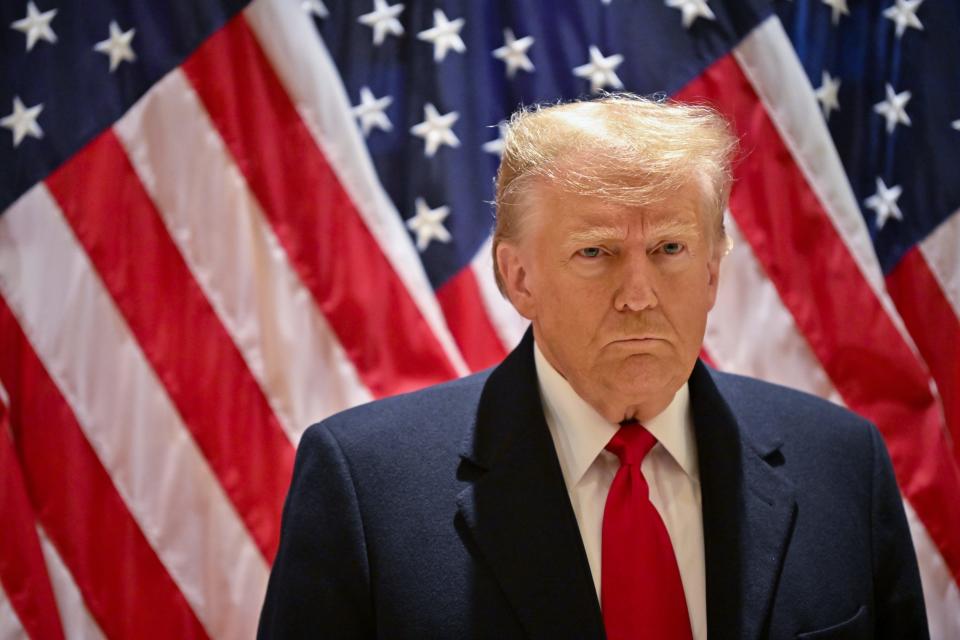Trump cedes control of the cash collateral for his $175M civil-fraud bond under new agreement with NY officials
- Oops!Something went wrong.Please try again later.
NY took Trump and his bond underwriters to court Monday, three buildings south of his criminal trial.
The parties agreed to limit Trump's access to $175M collateralizing his civil fraud appeal bond.
The NY Attorney General's Office had been concerned that Trump maintained some control of the cash.
Lawyers for Donald Trump and the New York Attorney General's Office struck a deal Monday that will now keep the GOP frontrunner from having any access to the cash collateral for his $175 million civil-fraud bond.
The agreement reached in civil court in Manhattan essentially moves the all-cash collateral to a Trump-proof lockbox. Only the bond underwriter, Knight Specialty Insurance Company, has the key.
Previously, Trump and Knight shared control of the cash, a sticking point for the AG's office.
Monday's agreement was reached during a 20-minute huddle among the lawyers, Law360 reported.
The hearing revealed that the cash, held in a Charles Schwab account pledged to KSIC, has already earned Trump $700,000 in interest, the outlet reported.

The 10 a.m. bond hearing overlapped with the start of opening statements in Trump's criminal hush-money trial, held on the same Lower Manhattan street, two courthouses to the north.
The bond keeps AG Letitia James from potentially seizing Trump's assets to satisfy the more than $454 million he owes the state after losing last year's civil fraud trial.
Trump is appealing the penalty, which continues to accrue interest at a rate of $1 million every nine days. On Monday, his debt to New York totaled $460 million.
The monetary judgment and other penalties — including a ban on Trump running a New York business for three years, currently on hold due to the appeal — were imposed in February.
State Supreme Court Justice Arthur Engoron, who presided over the nearly 11-week fraud trial, found that for a decade, Trump, his eldest sons, and the Trump Organization exaggerated his net worth in financial statements used to secure more than $400 million in loans.
Read the original article on Business Insider

